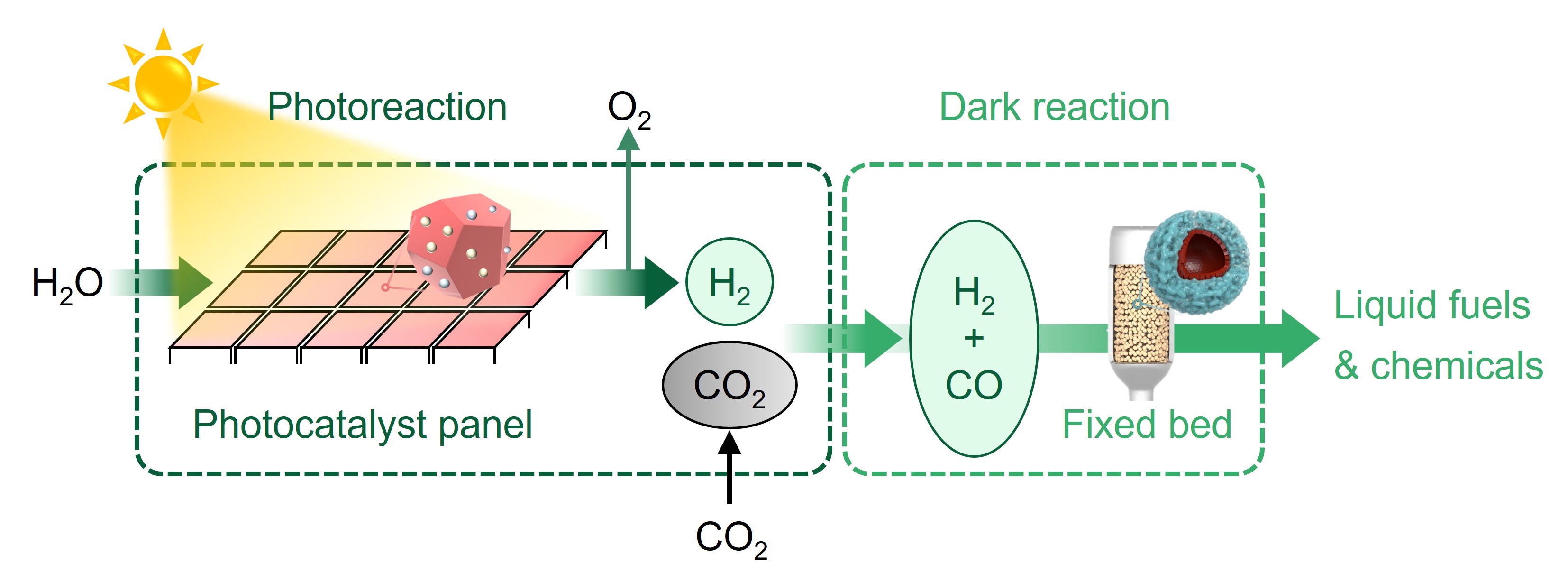Overview

Today, there is an urgent need to reduce carbon emissions in response to global warming. The vast abundance and inexhaustibility of solar energy, when coupled with the low carbon footprint of its utilization in comparison with that of fossil fuels, make solar energy an optimal energy source in mitigating society’s greatest challenge in the 21st century. The XIAO lab mainly studies solar energy-driven catalytic reactions and processes for producing renewable fuels and chemicals from small molecules (H2O, O2, N2, CO2, CH4, etc.). The current focus is to develop innovative solid (photo-)catalyst materials and flow reaction systems with high efficiency and durability, and with great potential to scale up, as well as to understand the (photo-)catalytic reactions at different spatial and temporal scales by advanced spectroscopy and spectromicroscopy. Through these studies, we aim to provide promising solutions to establishing carbon-neutral and sustainable processes.
Artificial Photosynthesis
Artificial photosynthesis paves the way to a solar fuels and chemicals industry and holds great promise for radically changing the global energy picture. We mainly focus on i) solar H2 production via overall water splitting using narrow-band-gap photocatalysts and ii) C1 (CO2 or renewable syngas) conversion by thermal/photothermal catalysis using hierarchically tailored solid catalysts.

References
Overall Water Splitting by Photocatalysis
https://pubs.acs.org/doi/abs/10.1021/acs.accounts.3c00011https://www.nature.com/articles/s41467-023-43838-3
https://pubs.acs.org/doi/full/10.1021/jacs.2c11025
https://onlinelibrary.wiley.com/doi/abs/10.1002/anie.202116573
https://pubs.acs.org/doi/abs/10.1021/jacs.1c04861
Solar Reactive Oxygen Species (ROS): Detection, Control & Applications

References
https://pubs.acs.org/doi/abs/10.1021/acscatal.7b02180
https://pubs.acs.org/doi/abs/10.1021/acscatal.9b02426
https://pubs.acs.org/doi/abs/10.1021/acs.est.7b04215
https://books.rsc.org/books/edited-volume/1996/Advanced-Ozonation-Processes-for-Water-and


